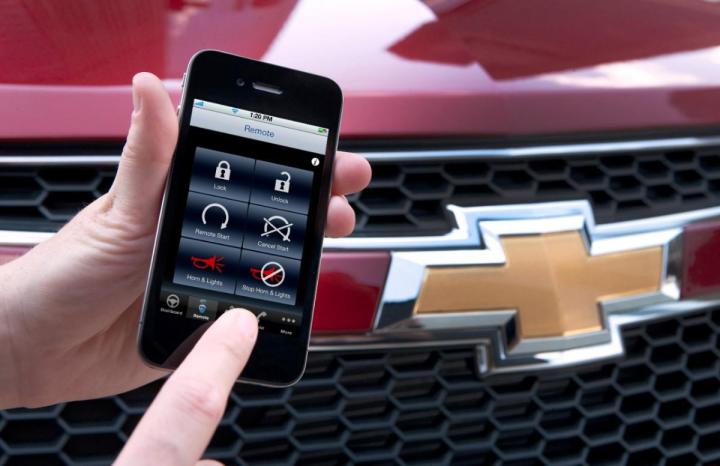
“We’re confident the issue is closed,” Terry Inch, GM’s OnStar chief, said in an interview with WardsAuto at a recent OnStar press event. GM began deploying its software fix almost immediately after the issue became public, and now believes the vulnerability has been completely eradicated.
Uncovered by researcher Sammy Kamkar, the vulnerability allowed hackers to break into a car’s onboard systems using the OnStar RemoteLink smartphone app. Chamber used a device positioned on the victim car to harvest credentials, and then use those credentials to mimic the app.
Since the app allows drivers to do things like remotely lock and unlock doors, or start the engine, those powers would be conferred to the hacker. GM has since added a patch that allows the OnStar system to check for fake access certificates, something it wasn’t programmed to do before.
“We feel the vulnerability is taken care of by downloading the new RemoteLink app,” GM’s Inch said. However, he cautioned that future hacking episodes are still possible, saying that “we can’t say something like this will never happen again.”
Inch said GM is always looking into ways to improve the system, including working with universities and government agencies to identify additional possible weak points, and to pre-empt any future hacker attacks.
The OnStar hack came hot on the heels of a vulnerability in Chrysler’s Connect infotainment system that allowed researchers Charlie Miller and Chris Valasek to remotely take control of a Jeep Cherokee. Fiat Chrysler Automobiles is recalling 1.4 million vehicles to implement a software fix.
Perhaps the most tech-heavy car on the market, the Tesla Model S, also became a victim recently. At the recent DefCon convention in Las Vegas, hackers Kevin Mahaffey and Marc Rogers claimed they were able to break into a Model S and control certain functions, including remotely shutting the car down.
As cars become increasingly connected and computerized, it seems the same vulnerabilities that plague smaller-scale electronic devices are creeping into dashboards. Consumers may soon have to decide if connectivity is worth the price of safety.
Editors' Recommendations
- General Motors enters the used car game with CarBravo
- What is OnStar?
- Honda will use General Motors technology to build two electric cars
- Why General Motors won’t be showing its next electric car at CES
- United Auto Workers set to strike at General Motors; truck, SUV supply at risk


